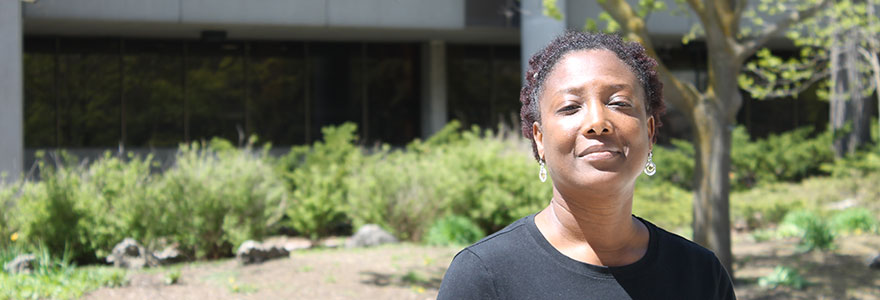News and Updates
Contact
Faculty of Social Science
Social Science Centre
Room 9438
Western University
T. 519-661-2053
F. 519-661-3868
E. social-science@uwo.ca
Building gender equality in post-conflict Liberia
June 05, 2017
What are the prospects and challenges for gender equality in a post-conflict society?
This is one of the questions Erica Lawson, Associate Professor in the Department of Women’s Studies and Feminist Research, intends to research.
Lawson was recently awarded a $110,000 grant from the Social Sciences and Humanities Research Council of Canada to research Peace Huts, Gender Equality, and Women’s Post-Conflict Aspirations in Liberia.
Lawson was drawn to the topic through the documentary “Pray the Devil Back to Hell”. The film documents the role of women to end the Liberian Civil War (1989-2003). Mass protests led by Women of Liberia Mass Action for Peace played a major role in encouraging peace talks, and eventually putting an end to the war.
Following the war, many of the women in the organization continued their advocacy and community leadership roles. One focus of this was the development of Peace Huts, supported by UN Women. Women who run Peace Huts in counties across Liberia mediate disputes, domestic violence, and abandonment, among a number of other issues, to reach a resolution. Through this work, women are invested in building a national culture of conflict resolution, peace, and security rooted in gender equality.
Lawson was interested in the role of the Peace Huts in supporting equality goals, but after discussion with her research partner, Ms. Vaiba Flomo, a peace activist and trauma counselor in Liberia, Lawson decided to expand her research to include women in other
leadership and political roles who are focused on gender equality policies.
“Women were instrumental in the election of Ellen Johnson Sirleaf, who made gender equality a major part of her platform,” said Lawson. Elected in 2006, Sirleaf is the first elected female head of state in Africa.
Women have also played major roles in resisting logging companies who exploit natural resources, and provided support during the recent Ebola outbreak, which resulted in many women losing their lives.
“There isn’t much social infrastructure to support communities, so women in Peace Huts take on these roles,” said Lawson. While the peace huts build on a pre-conflict tradition of group discussions to resolve disputes, Lawson said women in Liberia took up the role to sustain the peace they want.
“In Liberia, women speak strongly of their motivation for peace because they are biological and social mothers,” said Lawson. “They care for children, the elderly and the community. They seem to have different aspirations for peace than men.”
“It will be very interesting to see what Liberia looks like 10 years from now,” said Lawson. “Women in Liberia have made significant progress. They elected a female president, but scholarly literature indicates that they have not made a lot of economic progress and they are working hard to change this.”
Lawson’s research will include considerations on how the findings from Liberia reflect the situation in other post-conflict societies with similar gender equality goals.

